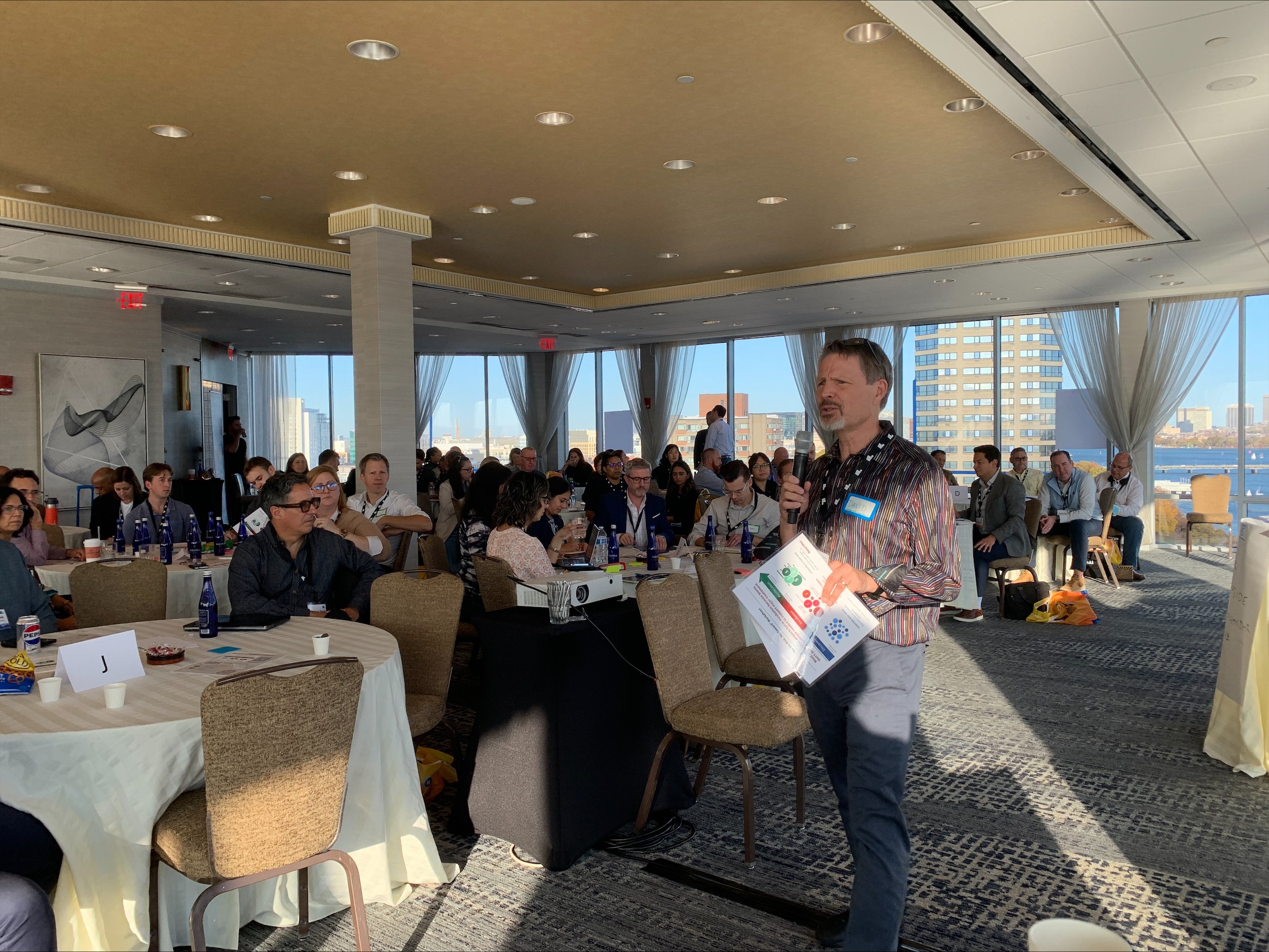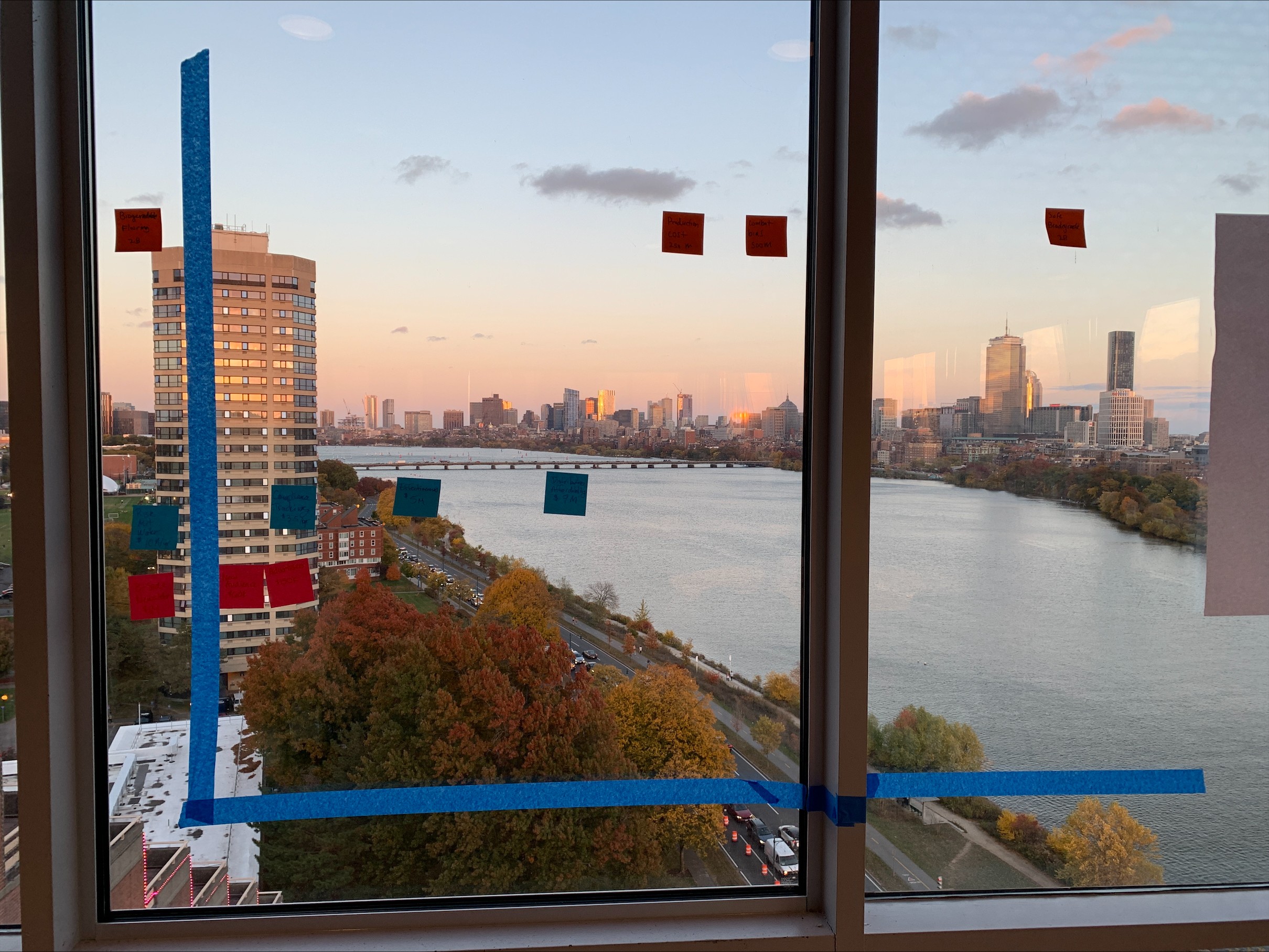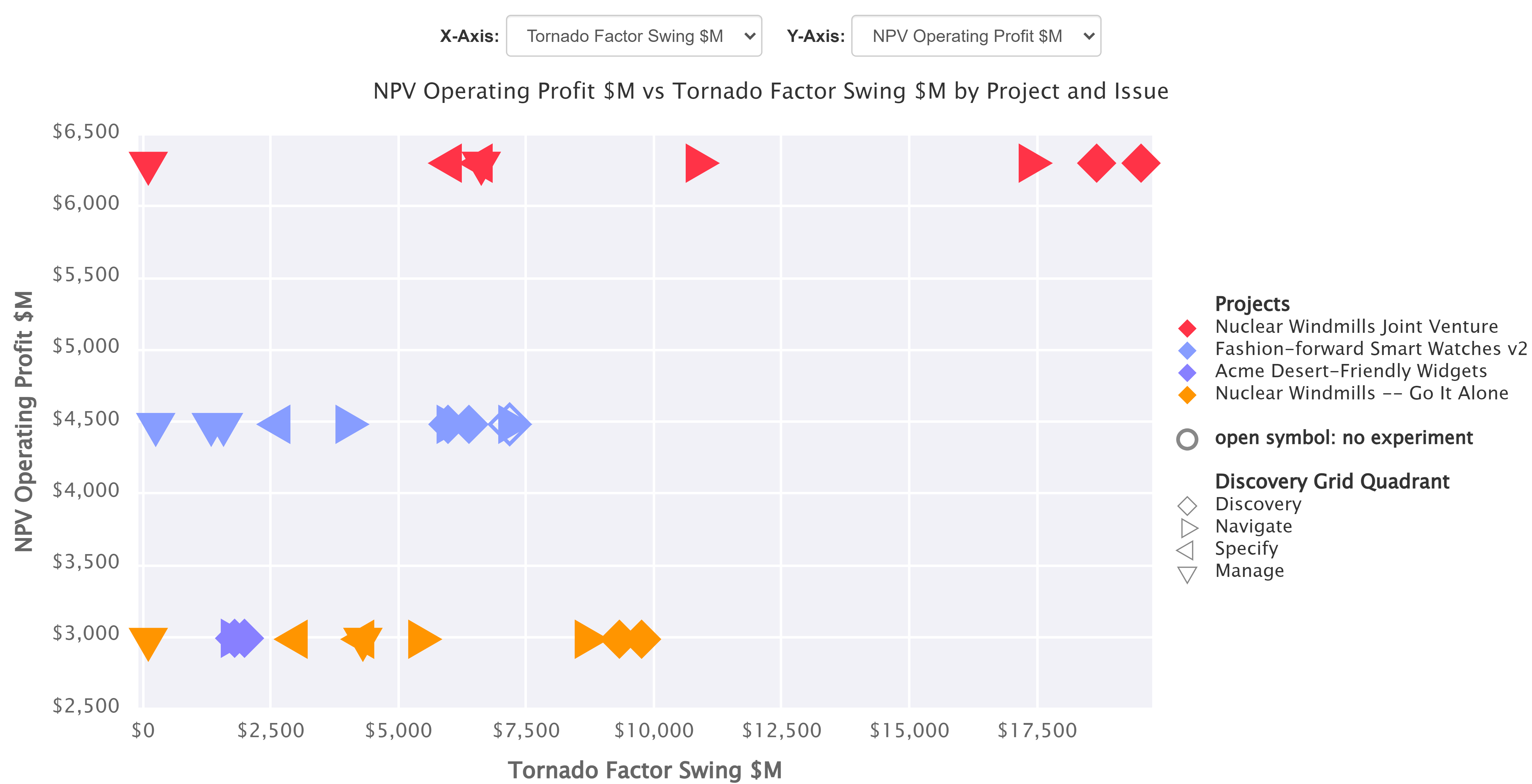Inside SmartOrg’s ‘No De-Risk, No Reward’ Workshop at IMPACT
By Doug Williams  4 min read
4 min read
If you couldn’t join us at InnoLead’s annual IMPACT conference in Cambridge, MA, you missed a workshop that shook up how innovation teams think about early-stage project success. SmartOrg’s session explored why most innovation projects fail at the incubation stage and how a fresh approach to prioritizing issues can change the game entirely.
Here’s a look at what went down—and why you’ll want to catch us next time!
In the workshop, we dove right into a tough reality: incubation-phase projects often falter because they lack solid evidence to secure executive buy-in. The incubation phase is full of unknowns, so it’s critical to prioritize the right areas—those that will bring the business case to life, showcase the upside potential, and prove the project is worth further investment.
We kicked things off by asking participants about their biggest challenges. The list was extensive: de-risking strategies, quantifying opportunities, building stakeholder confidence, overcoming bias from top-level execs, and more. Attendees were ready for a practical, actionable solution.

To give attendees a hands-on feel for our method, we introduced a real-world example: a project from Welch’s Tammy Butterworth, one of SmartOrg’s volunteer Thought Leaders. Tammy shared a product extension opportunity from her prior company that was incubated. She estimated the baseline value of the current in-market product at $1 billion.
With that baseline in place, we asked Tammy to define the project’s critical success factors. She identified some major issues that fed into the total addressable market, serviceable addressable market, future market share, and product scalability. From this, attendees in the room learned a game-changing insight: that focusing on the swing of each issue—how it could affect the project’s upside or downside potential—creates a much clearer view of which issues to tackle first and where to prioritize resources.
Then it was time for the attendees to put the theory into practice. Each table group followed the same method to map a project’s critical issues and their associated swings. Using sticky notes, each team identified the issues and corresponding swing that could make or break their business case. Groups formed to create their own “De-Risk Dashboard”—a visual tool that organized their projects into a portfolio that revealed baseline value (Y-axis) and the swing (X-axis) for each defined issue (the sticky note).

The real power of our workshop method? It reframed the prioritization of innovation work, not by traditional metrics of current project value and confidence, but by learning opportunities. But there’s a deeper truth here: building a strong business case, pinpointing issues that determine project success, and quantitatively linking those uncertainties to decision-making isn’t just challenging—it’s complex and layered. Sticky notes and gut-feeling estimates won’t win the day outside of a workshop setting. That’s where SmartOrg’s Innovation Navigator software makes all the difference. It streamlines what would otherwise be an overwhelming process, letting you zero in on the issues that truly matter, boost upside potential, and avoid costly missteps.

For those who couldn’t make it, don’t worry; we’re here to help you catch up. Download our No De-Risk No Reward Workshop Workbook and get our iNav In Action eBook to dive into the principles and see how they can transform your approach to early-stage innovation.
Ready to change the way you think about innovation? Keep an eye out for our next workshop announcement, and join us as we continue to drive smarter, more strategic decisions in innovation!